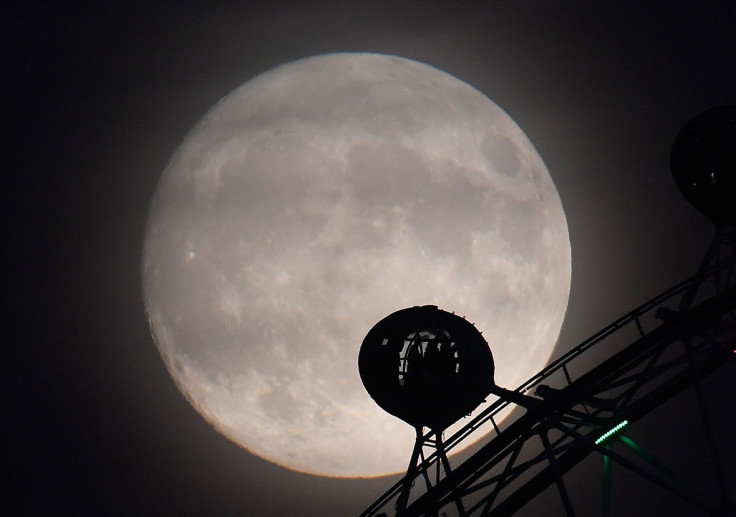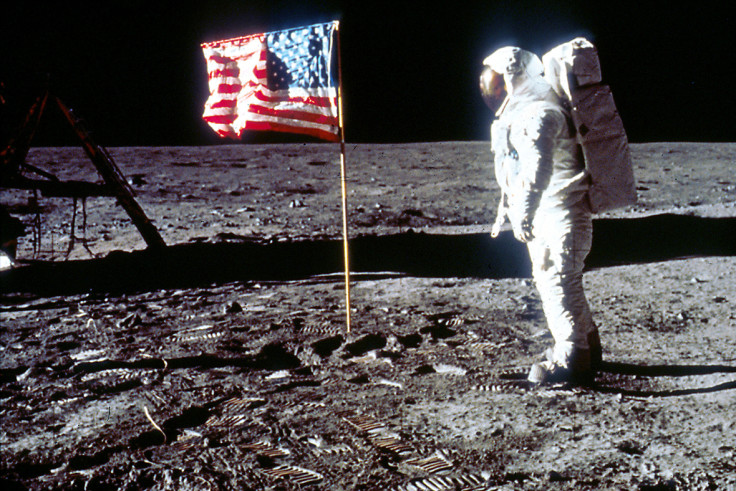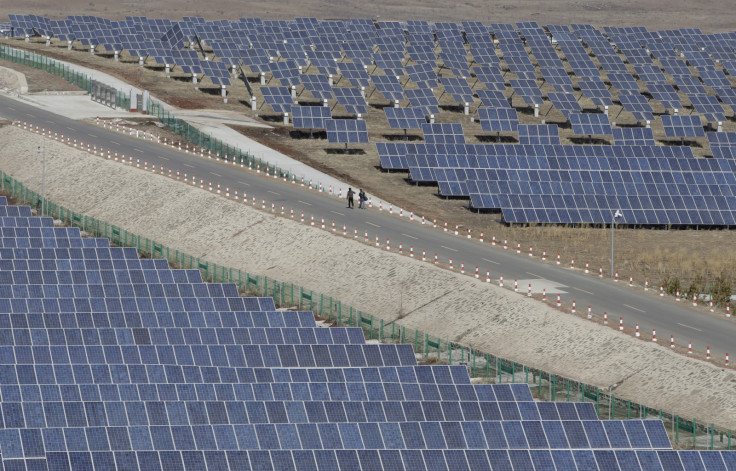Moon Express: The ethical dilemma of private companies mining the Moon for its resources
Helium 3 from the Moon could lead to fusion energy, but who gets to profit from it?
Earlier this week Moon Express co-founder Naveen Jain said the company plans to land on the Moon this year, with a view to mine it for its natural resources. The private company was granted permission to travel to space by the US government last year and it has now raised the funds needed to carry out its mission.
Jain said the company is looking to acquire Helium 3 (He-3) and Platinum-grade material – a move he claims would be "for the benefit of humanity". But would it not also prop up the company's balance sheet?
The ethical implications of mining on the Moon are wide-ranging. Countries around the world are bound by a 1967 treaty with regards to governing activities on the Moon. The Outer Space Treaty sets out international space law. One rule, for example, says you cannot place weapons of mass destruction in orbit.
Another, explicit section says no government can claim a celestial resource: "Outer space, including the Moon and other celestial bodies, is not subject to national appropriation by claim of sovereignty, by means of use or occupation, or by any other means."
One way to get round this is through private companies, and in 2015 documents emerged that appear to show the US government encouraging firms to commercially develop the Moon. In a letter to Bigelow Aerospace, the Federal Aviation Administration (FAA) said it plans to "leverage the FAA's existing launch licensing authority to encourage private sector investments in space systems by ensuring that commercial activities can be conducted on a non-interference basis". In effect, it says any base set up on the Moon would have rights to that territory.
So why so much interest? Our natural satellite has a host of resources that could prove hugely valuable on Earth. One of the ones of greatest interest is He-3. This is a light, non-radioactive isotope of helium that comes from the outer layer of the Sun and is carried around space by solar winds. It is hardly found anywhere on Earth because it is pushed away by its magnetic poles. But on the Moon, it is heavily accumulated – up to one million tonnes, some estimates suggest.

It is thought He-3 could be used in nuclear fusion – a sustainable, limitless form of energy that harnesses the power of the Sun. If this technology was realised, it would be the Holy Grail of power for the planet. This is just one idea though, and it would not necessarily work.
As Dr David Kingham, CEO of Tokamak Energy, told IBTimes UK: "Now is a great time for bold new ventures and from a scientific perspective Moon Express' announcement is exciting. As far as a direct relevance to fusion, there have been ideas in the past about mining He3 on the Moon to power fusion reactors on Earth, but we believe the best way forward for fusion power is to concentrate on deuterium-tritium fusion as the deuterium is readily available on Earth, tritium can be 'bred' from readily available lithium and the deuterium-tritium reaction is a whole lot easier than any other fusion reaction.
"Having said that, for the fusion industry, we can look to this as a blueprint for successfully encouraging investment in promising technologies with international significance. A similar prize for fusion would be brilliant for the industry and would encourage rich competition."
He-3 has other uses on Earth, of course. And the Moon has other resources. Shackleton Energy, for example, plans to use lunar water found beneath the surface as a propellant for missions deeper into the solar system.
Competition among private companies is good – generating wealth through jobs and profits. So exploiting the Moon for its resources is not necessarily a bad thing. Tony Milligan, who teaches ethics at King's College London and is a key researcher with the Centre for Ethics at the University of Pardubice in the Czech Republic, pointed to several arguments for and against lunar mining in an essay in 2013.
When looking at pros, the lure of fusion energy is the main one. It presents potentially huge advantages for both mankind and the planet – that much is clear. Milligan told IBTimes UK: "The argument for is that the private sector becomes a driver for space exploration, which offers benefits to humanity through scientific knowledge. I suppose that's the notion."
The arguments against are wider ranging, however. "The main argument against is that some sort of damage will be done, and that we either have a responsibility to protect the integrity of the Moon or we have worries about justice and entitlements. We maybe destroying something of cultural significance. It is the common heritage of mankind that should be there for future generations," he said.
In terms of any mining potentially being carried out by private companies, Milligan said: "How many cowboys does it take to destroy the Moon? I think this is a reasonable concern. I suppose it's things like the monitoring systems and the disclosure of information. If damage is happening how do we catch it in time before it becomes out of control?"
He likened moon mining to the extraction of resources from the seabed in terms of being under constrained with poor monitoring systems. "Given that the Moon – and this is a big ethical argument – is a culturally significant object, a major part of our history, we would need a regulatory structure that is more constraining than that. We want extraction processes to make sense in terms of the science and technology. We need protection. Lunar protection. There must be integrity."

There is the problem of which countries would the private companies belong to. At present, few nations on Earth have the technology and money required to get to the Moon. Should a handful of private companies from wealthy nations end up mining the Moon, there is a concern that the divide would increase even more.
This can be seen to an extent in seabed mining. Countries that are more technologically advanced tend to be the ones engaging in projects. But international regulatory framework and agreements mean there is a certain amount of investment from these countries to developing ones.
"In the case of exploitation of Moon resources that makes no sense," Milligan said. "There are only a small number of players for the indefinite future and there's only ever going to be small number. It's the notion that we should just accept that – to all practical intents and purposes – the Moon belongs to private sector companies from half a dozen countries. While the rest of the world should have notionally a claim on the Moon as common heritage, it's not really a claim."
But what about the limitless energy moon mining He-3 will bring? Surely that benefits everyone on the planet? Not so much, Milligan said.
In 2014, Ian Crawford, from the University of London, carried out a review of the economics of moon mining. He said the opportunities for moon mining to contribute to the world economy are limited. "When we pull together the evidence, it remains difficult to identify any single lunar resource that will be sufficiently valuable to drive a mining industry on its own. There is no simple solution," he said, adding he believes the mounts of He-3 estimated are "exaggerated".
The paper, in Progress in Physical Geography, said that if it was a choice between inflicting more environmental damage on Earth and taking raw materials from an uninhabited planet, the latter would be preferable. But this should be done in the context of a "space-based economy" – i.e. not placed in the hands of a handful of private companies.

Milligan continued: "The ethical payoff in terms of justice for nations which are not producing technologies for space exploration, it's not a viable argument. It's a pragmatic issue. It's an issue of justice to humans, to future generations. Do we go off with a dodgy plan and mess up a unique and irreplaceable body?"
Further to this, he points out there seems to be a fixation on mining. If it was just about energy, Crawford showed placing solar panels near the equator of the Moon, it would generate as much power as could be from all of the He-3, outperforming the latter in just over a year. "It would be far more efficient to beam lunar solar energy to Earth than it would be to extract, and physically transport to Earth, He-3 for hypothetical fusion reactors which have not yet been shown to be practical," he wrote.
So why are companies so keen on mining? "It's a weird thing to have a fixation on," Milligan said. "There must be some magical payoff and I don't think that's what space exploration has to be."
But all of these points are largely moot, he added. We are nowhere near being able to set up large-scale mines on the Moon yet. "First of all how are we going to get there? You need the technology to not only get to the Moon, which is difficult. You then have to land on it with a massive drill.
"You've got to talk about strip mining large areas of the Moon. And that's not a small operation, it's a large-scale industrial process and we are a very long away from being able to do that and a very long way from thinking that that sort of mining would be defendable because of the extent of surface damage. Plus, it's all very well to talk about He-3 for power generation, but nuclear fusion still has major obstacles standing in the way."
He added: "Mining on the Moon might be arguable if we were able to move onto the next, but we've only got one. For all generations for all humanity will only have one moon. If you mess that up, you've messed up in a very big way."
© Copyright IBTimes 2025. All rights reserved.






















